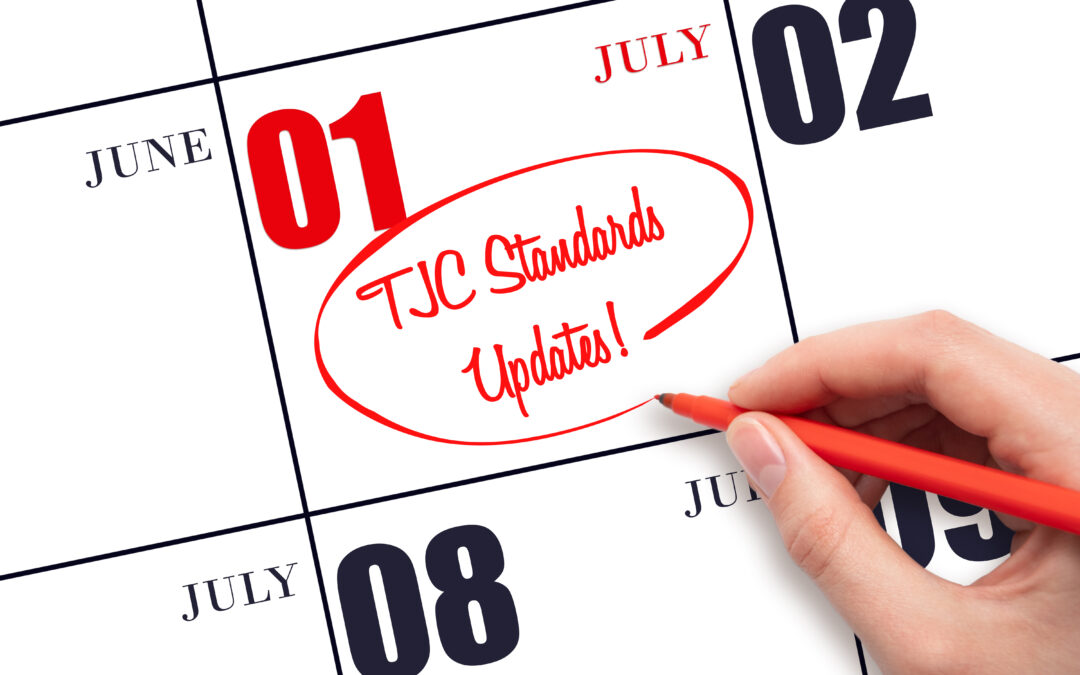The pace of change from The Joint Commission has accelerated markedly this year. With a wave of new and revised standards introduced in quick succession, These revisions signal a significant transformation in how behavioral health organizations and psychiatric hospitals are surveyed, evaluated, and supported. The Joint Commission standards updates reflect a broader push toward transparency, safety, and performance improvement across all TJC-accredited organizations.
Joint Commission Standards Updates: What Behavioral Health Organizations and Psychiatric Hospitals Need to Know
As additional updates roll out July 1, 2025, leaders in behavioral health and psychiatric hospital settings must ensure they are prepared for these revised and new standards that will directly impact compliance strategies and daily operations.
1. Revised Accreditation Participation Requirements
Effective July 1, 2025
Several foundational participation standards have been revised:
- APR.01.03.01 (EP 1) for all accreditation programs
These updates emphasize the organization’s ongoing commitment to participation in accreditation activities. Behavioral health and hospital leadership must ensure internal policies reflect these revised expectations and maintain readiness for annual review and reporting.
Resource: March 2025 Perspectives
2. Major Overhaul of Emergency Management Standards
Effective July 1, 2025
The entire Emergency Management (EM) chapter has been revised for behavioral health and human services organizations. Expect:
- Clearer hazard vulnerability assessment expectations
- Refined emergency response protocols
- Stronger focus on continuity of care during disasters
This change will impact emergency preparedness drills, documentation, and staff training.
Resource – R3 report
3. Revised Infection Control (IC) Standards
Effective July 1, 2025
Infection control expectations have been modernized and expanded across multiple care settings. For behavioral health providers accredited under the Behavioral Health Care and Human Services Manual, this will require updates to:
- Surveillance protocols
- Environmental hygiene practices
- Staff competencies for infection prevention
Given recent lessons from COVID-19 and other outbreaks, this shift emphasizes proactive prevention over reactive management.
Resource: R3 Report
4. Updates for Opioid Treatment Programs (OTPs)
Effective July 1, 2025
The Behavioral Health Care and Human Services accreditation standards have been aligned with SAMHSA’s final rule on medications for opioid use disorder (MOUD). Changes include:
- Updated documentation for take-home dose
- Enhanced clinical oversight
- New expectations for individualized treatment planning
OTP leaders should crosswalk these requirements against existing practices to ensure alignment.
Resource: Prepublication Requirements
Preparing for What’s Ahead
Behavioral health organizations and psychiatric hospitals must now prepare for a more structured, transparent, and safety-driven accreditation environment. These Spring 2025 revisions are not just administrative updates—they are systemic shifts designed to improve patient outcomes, organizational accountability, and public trust.
Next Steps for Behavioral Health Leaders
- Conduct a gap analysis against the revised EM and IC standards
- Evaluate opioid treatment program compliance with the SAMHSA-aligned changes.
- Review and update policies, procedures, documentation, and processes in preparation for July 1 implementation deadlines.
Barrins & Associates
Need help navigating these changes? The Barrins team of accreditation and regulatory experts can provide readiness assessments, policy, procedure, document, process updates, and staff training tailored to the revised Joint Commission standards. Contact us today to schedule a consultation before the July 1 effective date.
Barrins & Associates: “Your Path to Accreditation Success: Our Experts Know Every Step!”


